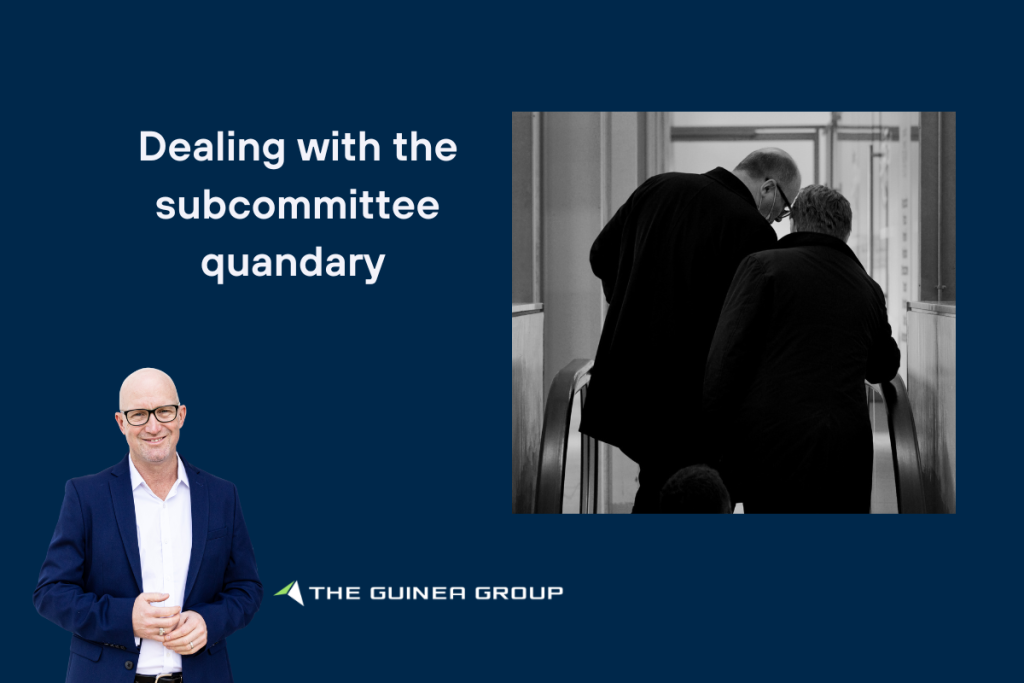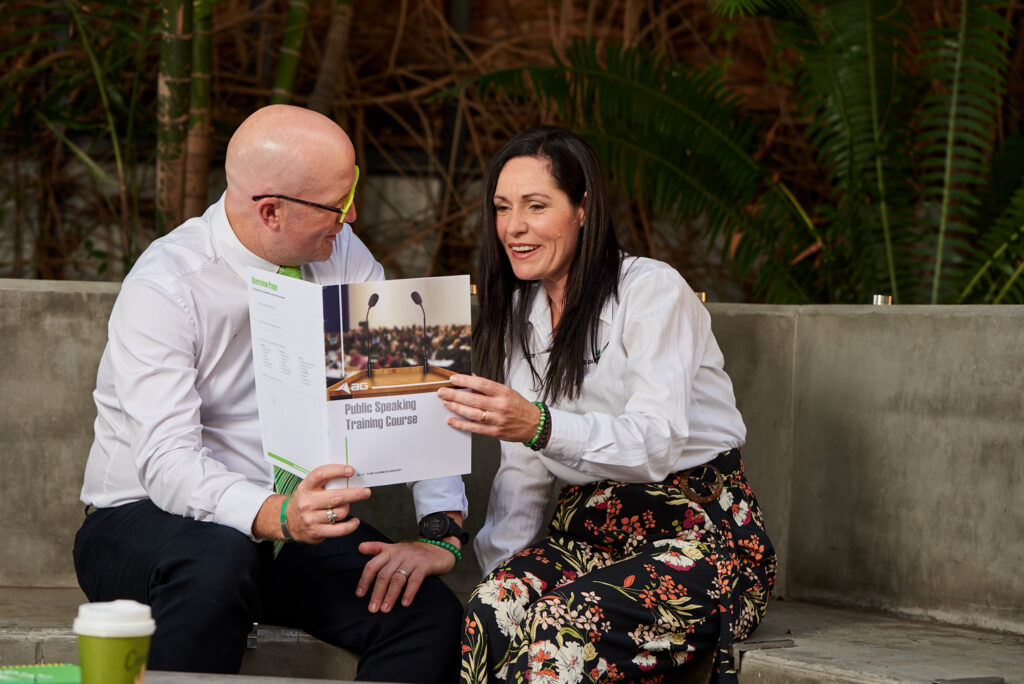Anton Guinea
Entrepreneur, Speaker, bestselling author, and founder of The Guinea Group of Companies. For over 15 years, Anton has helped leaders move their teams to become psychologically safe, physically safe and overall better versions of themselves.

Dealing with the subcommittee quandary

One of the biggest challenges that leaders face is the subcommittee. The subcommittee includes those team members that aren’t courageous enough to speak up in meetings. And then they take the meeting outside the meeting. And make their own decisions. An uncool situation for a leader.
Subcommittees are destructive. Subcommittees are a form of gossip. And subcommittees undermine the ability of the leader to build an inclusive and high performing team.
But how do you prevent that? And how do you ensure that everyone is comfortable speaking up. And how do you ensure that people don’t feel the need to take the meeting to the water cooler.
Below are three essential strategies that leaders can employ to encourage active participation and open communication during meetings, thus reducing the tendency for gossip outside the meeting room.
1. Lead by Example
Leaders play a crucial role in setting the tone for their teams. If you want your team members to speak up during meetings, you must demonstrate that you value and appreciate their input. Encourage a culture of open communication by actively seeking feedback and ideas from your team members.
Here’s how you can lead by example:
Active Listening: Pay attention to what your team members say during meetings. Demonstrate active listening by maintaining eye contact, nodding, and asking follow-up questions. When people feel heard and understood, they are more likely to participate in future discussions.
Acknowledge Contributions: Whenever someone offers a valuable idea or suggestion, acknowledge their input and express appreciation. A simple, “thank you for sharing that insightful perspective,” can go a long way in encouraging further engagement.
Embrace Constructive Criticism: As a leader, be open to receiving feedback and criticism. Show your team that you value diverse points of view and are willing to learn and adapt based on their insights.
2. Create a Safe and Inclusive Environment
To encourage open communication during meetings, it is essential to create a safe and inclusive environment where everyone feels respected and heard. Fear of judgment or negative repercussions often leads people to stay silent or resort to gossip.
To foster such an environment:
Set Clear Expectations: Make it clear that open communication is not only welcomed but expected during meetings. Encourage team members to share their thoughts, concerns, and ideas without fear of ridicule or punishment.
Emphasise Confidentiality: Ensure that discussions held during meetings are treated with confidentiality. This reassurance will encourage team members to speak freely without worrying about their words being taken out of context outside the meeting room.
Foster Psychological Safety: Psychological safety is crucial for encouraging participation. Be approachable and avoid reacting defensively to differing opinions. Encourage healthy debates and discussions, where dissenting viewpoints are valued and explored constructively.
3. Implement Effective Meeting Practices
The structure and conduct of meetings can significantly influence participation levels. By adopting effective meeting practices, leaders can create an environment that promotes open dialogue and minimises the need for gossip.
Set an Agenda: Share the meeting agenda in advance to allow team members to prepare and gather their thoughts. This ensures that discussions stay focused and relevant.
Encourage Rotation: When certain team members dominate discussions, others may feel discouraged from speaking up. Encourage participation by rotating meeting facilitators or allowing different team members to lead discussions on specific topics.
Time Management: Respect everyone’s time by sticking to the scheduled meeting duration. This prevents rushed discussions and allows for more thoughtful contributions.
In conclusion, effective leaders understand the importance of open communication and actively work to cultivate an environment where team members feel comfortable expressing their ideas and concerns during meetings. By leading by example, creating a safe and inclusive environment, and implementing efficient meeting practices, leaders can foster a culture that values dialogue over gossip. This shift not only improves decision-making but also strengthens team dynamics, leading to increased collaboration and overall success. So, let’s prioritise open communication and transform our meetings into platforms for constructive discussions and collective growth.
Have you ever had this issue, and what did you do about it?
Click the image below to lock in a time to talk through it.

I partner with leaders who are under pressure, to help them create conscious control, so that they can develop psychologically safe and high performing teams.
If you would like to work through this with me, please click here or on the image to book into my calendar.
About Anton
Anton has dedicated his working life to helping leaders to upgrade their mindset, upskill their leadership, and uplift their teams! With a focus on helps leaders to better lead under pressure. Anton is an entrepreneur, speaker, consultant, bestselling author and founder of The Guinea Group. Over the past 19 years, Anton has worked with over 175+ global organisations, he has inspired workplace leadership, safety, and cultural change. He’s achieved this by combining his corporate expertise, education (Bachelor of HR and Psychology), and infectious energy levels.
Work With Anton!
Subscribe to our Newsletter